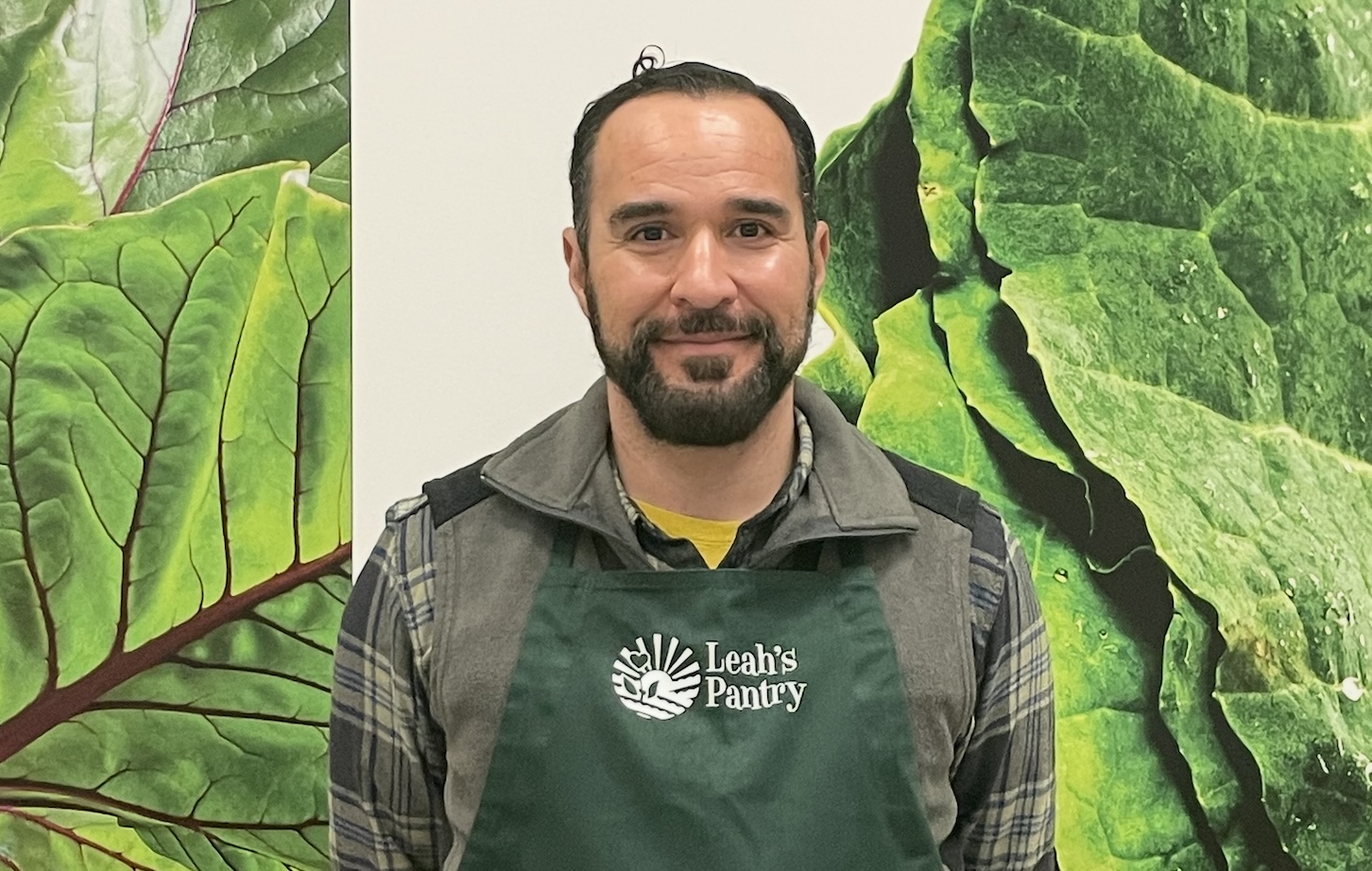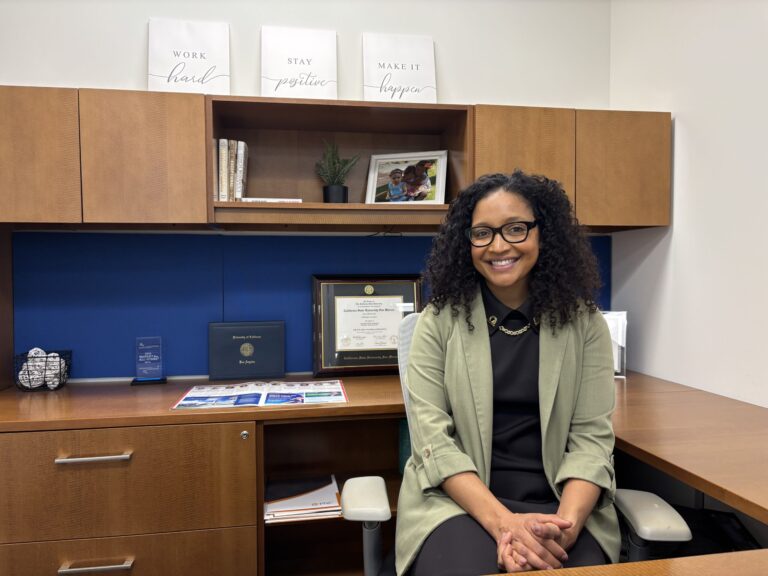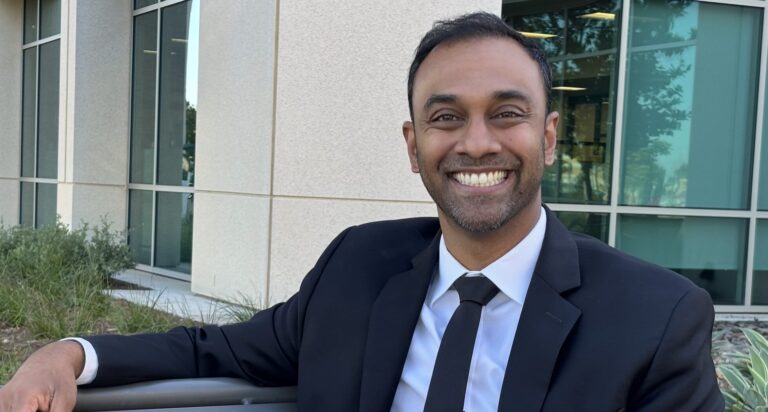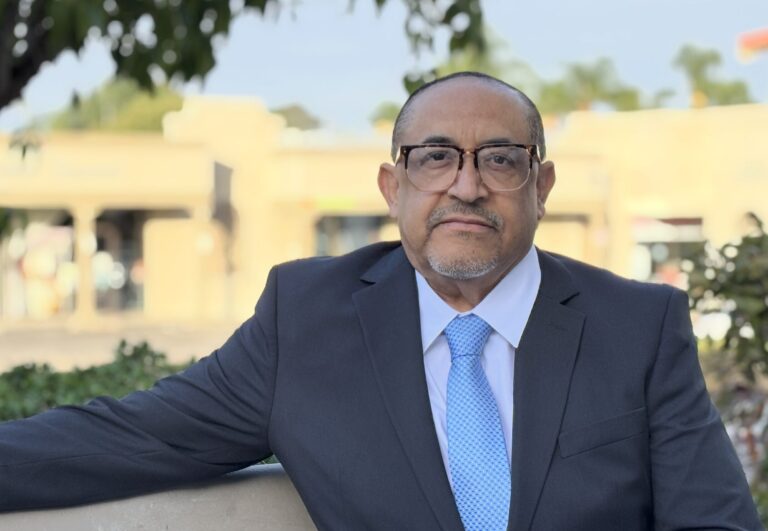Carlos Alessandrini gives simple yet effective tips for nutrition, stress management, and wellbeing
“When you have two, three jobs, hardly any sleep, high stress levels, low-quality nutrition, you’re not thinking about getting home, cooking, washing dishes,” says Carlos Alessandrini, a community nutrition expert. That’s why it’s so important for him to teach simple, practical, yet impactful nutrition tips to the community.
As a first-generation Mexican American born in Tijuana, Carlos was exposed to both cultures, including US sports. His passion for the NBA set the stage for his love of sports and fitness overall. “That pretty much got me interested in the field of health and fitness,” he tells North County Informador.
He indulged that love by completing a fitness specialist certification at City College, building nutrition knowledge. “When I started to be formally educated in the field, I saw how in the pyramid, the foundation is health.”
Later, during his undergrad studies in nutrition sciences at Universidad de Estudios Avanzados in Tijuana, Carlos took part in the Mexican student requirement of servicio social, or social service. “You’re doing a lot of community work,” he explains. He started leading grassroots efforts in communities in Rosarito and Tijuana, where he presented nutrition education in small doses that anyone could understand. “At the same time, different approaches that were realistic to their current lifestyle,” he adds.
Marketing presents us with “a lot of different products and diets that won’t necessarily impact health in a positive way,” he notes.
Working at Family Health Centers of San Diego, he did a lot of one-on-one counseling. But when he began doing group presentations on nutrition, health, and fitness, he says he felt privileged to be able to leave such a mark on people’s lives. He realized then he had been gifted with the ability to work with the community and society to teach responsibility about health and fitness.
“Doing the one-on-one counseling, you invest so much, but the impact I felt I was doing was minimal compared to the group counseling and the group presentations.”
Today, he taps into his experience with group presentations in his work as the senior program coordinator for Leah’s Pantry in San Diego, where he directs bilingual, group-oriented cooking, nutrition, and wellbeing workshops.

Much More than Nutrition
Carlos agrees with Leah’s Pantry’s philosophy, teaching nutrition based on a trauma-informed approach. “We have a lot of training on the Adverse Childhood Experiences Survey (ACES), different events that might have happened throughout your lifetime before you turned 18.”
This training lays the groundwork for community nutrition education courses, an approach Carlos says aligns with his values. “It was a perfect fit with my previous philosophy of making sure that I’m not only tailoring a menu, but I’m counseling as well,” he says.
Many of the people who attend his courses are recovering from traumatic experiences, so he says he chooses his battles and concentrates on simple nutrition tips. “You don’t want to talk about high-level antioxidants, vegetables that will minimize your free radicals to someone who’s not even buying or thinking about eating vegetables,” he says.
Leah’s Pantry’s Around the Table Nourishing Families program goes beyond basic nutrition to include stress management, coping skills, and even how to hold a knife.
Carlos says he pushes for realistic tips that are not daunting to his audience. He says it is not easy, but he’s always seeking to have a positive impact, especially on future generations.
“Once you’re able to control your environment, the things you’re cooking, and yourself, you will start to make better decisions, little by little,” realistic goals, “making the whole cooking environment friendly, easy, practical, affordable.”
One of the most important lessons for Carlos has to do with planning for grocery shopping. He says grocery stores are set up to entice clients toward certain products that may not be the healthiest. “Trying to get out of the store by sticking with a plan is challenging,” he says.
“One of the things I talk about is to ensure that they don’t go to the store even with an appetite.” He says he can go shopping even when he’s not hungry, but “I’ll start seeing food, and boom, my hunger is through the roof.” He recommends eating a good meal and drinking some water before going to the grocery store. That simple tip, he says, “will make a world of difference in buying healthier, eating better, and having the right tools to cook.”
Carlos can also provide assistance regarding the WIC and CalFresh programs and even food banks where his students can access fresh fruit and vegetables. “Leah’s Pantry is partnered with both of the two major food banks, Feeding San Diego and San Diego Food Bank,” he says.

Cross-Cultural Experience
Carlos’ bilingual skills allow him to teach group classes through Leah’s Pantry in both English and Spanish. “We’d love to do more, but right now, we have only those two languages,” he says. He is currently teaching courses in Spanish at One Safe Place in San Marcos and other courses in English across the county.
Meanwhile, he feels he sometimes faces an identity crisis, telling us his father pushed for him to learn English as a child. “We were extremely influenced in Tijuana by the American culture” he says, “music, television, cartoons. I remember watching cartoons on Saturday morning the same way that most kids have done in the US.”
Yet, he says the differences are palpable. “It’s just different culturally.” When he was a student crossing the border every day, he remembers, he would say, “This is easier said than done having a two-hour wait to get across and start your day. It’s not the best way to go about it.”
Carlos still likes to visit Mexico often and has learned to bring together what he considers the best cultural aspects from both countries.
He feels Mexico is more nurturing, and says, “I can bring to the table the warmth, the way Mexicans and Hispanics overall express ourselves. We like to nurture.” These traits influence his cooking and nutrition courses. “Mexican mothers that I have a lot as my audience like to show love through cooking.” He also believes that trait is needed in the United States.
Another aspect of Mexican culture permeates his courses. “Mexicans, we don’t like to RSVP. We just show up. And we don’t only show up. We show up with neighbors, with friends, with offspring…” He says when he has limited space and ingredients, it becomes a challenge. He tells his students, “I’m glad that you’re all here. Please make sure you sign up. If anyone else is going to come down, that they sign up.” Carlos considers these reminders part of the reinforcement steps in the learning process.
Empowering through Health
Carlos is excited to empower his students, which include complete families of three generations. “You’ll see that some parents will bring their children to classes,” he says. “From Grandma to their offspring, and the kiddos. It’s quite beautiful to see how they’re able to continue those traditions, that knowledge, and specifically, the conversations that take place during the process,” he tells us. “I’m seeing more impact because if you don’t have that scenario where you’re cooking, you’re teaching, you’re doing all those processes, those conversations might not even take place.”
Carlos reminds families that, dollar-to-dollar, fast, easy food choices may seem hard to match. But he says it’s more important to focus on our health, “the investment in your health, in your wellbeing, in your focus, your mood.”
He says he gets a lot of general questions about nutrition. “What’s the best diet? What’s a good food? What’s a bad food?” He reminds everyone that these questions have no simple answers because nutritional needs vary from person to person.
“I try to educate them where they will feel knowledgeable enough and confident enough to be able to answer that question themselves,” he says. For example, how much water an individual should drink every day depends on height, weight, age, physical activity level, lifestyle, and more. “I’m trying to provide knowledge where they’ll be able to grasp that information and set forward realistic actions that will make an impact in their lifestyle and help them set the solid foundation in the pyramid of being healthy.”
If you are interested in upcoming classes at One Safe Place, please call Carlos at 650-684-0105.




